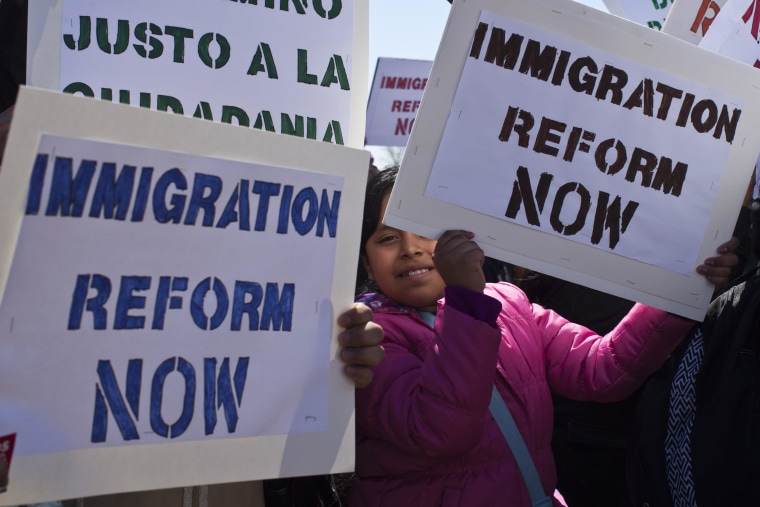Is there a downside to the rapid growth of the Latino population in American politics? A new book by two professors at the University of California at San Diego posits that mass immigration by Latinos has touched off a wave of bitterness among white voters who are voicing their disapproval with a migration of their own to the Republican Party - who is receiving them with open arms.
Marissa Abrajano is an award-winning political scientist and has written extensively about Latino politics throughout her career. Her latest book with co-author Zoltan Hajnal, White Backlash: Immigration, Race, and American Politics, is an analysis of the impact that the growing Latino population has on white political attitudes. The authors look that looks at the stark reality of how voters are hardening their positions on policies based on their views of Latino immigrants, attitudes that the authors say don't carry over to Asian American immigrants.
Even though other issues are important to Republican voters, immigration has once again risen to the top as a predictor of support for Republican policies, and despite Republicans who say that they welcome “legal immigrants” but not “illegal immigrants”, Abrajano says the data paints a different story.

“From most people’s minds, this distinction - legal immigration versus illegal immigration - doesn’t make all that much of a difference because from most people’s minds when they think about immigration they already have their notions and beliefs of what immigration is, and to a large extent it’s a negative perception of immigration,” Abrajano said in an interview with NBC News.
Abrajano and Hajnal conclude in their book that, “When Americans talk about undocumented immigrants, Latinos, or immigrants in general, the images in their heads are likely the same.” However, Americans aren’t always negative about immigrants. Abrajano and Hajnal’s analysis shows that whites do not have the same views when it comes to Asian-Americans.
For example, unlike Latinos, greater migration into states from Asian-Americans is unrelated to support or lack of support for social welfare policies, and there is greater leniency with respect to the death penalty when associated with Asian-Americans.
In other words, the authors say that the backlash is a response to the country’s negative views of Latino immigrants, not so much their negative views of immigrants in general.
So why is this backlash largely focused on Latinos? Abrajano and Hajnal argue that Americans’ sense of threat by Latinos comes largely from the media.
“The media plays an important role in how they portray good immigrants versus bad immigrants. Asians are stereotypically portrayed as ‘model minorities’,“ says Abrajano. She argues much of the negative reaction to Latinos is related to the type of attention the media gives Hispanics versus how Asian Americans are portrayed.
The role that the media plays in shaping how Latinos are portrayed could not be understated. Abrajano and Hajnal trace media attention to immigration back to 1980 and find that the greater the attention the media pays to the issue of immigration, the more diminished white support for the Democrats becomes. The focus on negative stories gives rise to the anxiety of Americans and the perception that Latinos are a threat.
This threat is influencing how Americans view policies, from their support of public programs, such as welfare and health care, to their support for harsher criminal laws, such as the death penalty. Where there is a perception of threat, there is a backlash.
In the short term, the Republican Party has been able to capitalize on these attitudes, say the authors, white voters made up almost 90 percent of their voters in the 2012 presidential election. Yet the realities of the influence of the growing Latino population leave one to wonder what the long term impact will be.
Despite their loss of the presidency, Republicans command the majority of the state houses in government. The GOP runs Congress, both the House and the Senate, and the majority of governors in the country are Republicans.
And while the GOP has reaped short term benefits, the long term may be a different story. In this, Abrajano says that is largely up to the Republican Party and that sooner or later their strategy will implode if they continue on the same path.
“It’s really up to the Republicans on what they want to do," said Abrajano. "The ball is in their court. So far, Trump has been appealing to the voters of now, not those they want to cultivate.”
NBC Latino contributor Stephen A. Nuño is an Associate Professor in the Department of Politics and International Affairs at Northern Arizona University. Follow Stephen on Twitter: @stephenanuno

